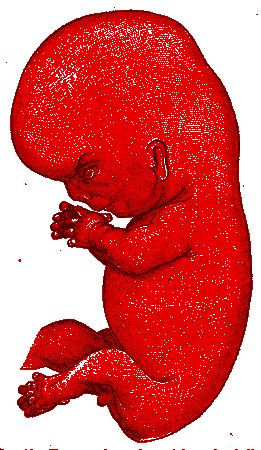« …Words enclose in their sonority the dynamism of materiels, images and actions which they keep more or less in memory (inner space). Other words move around, in black and white rather than in colour, and observe, explain, define… In the middle of these areas, verbs come to life (outer space). Words keep the memory of their original link to the environment in dialects…” Jacques Lecoq – The dynamism of words.
In acting classes we go through games and exercises to find the physical expression of the character, but the character is not an objective in itself. Meyerhold often speaks about archetypes, because at the end we have to see the big picture -- the fate, the life story. And, yes, we have to remember the pictures.
Remember you are in THAT role!
I will talk about objective and subjective reality in Actor's Chronotope, but here we have to state the basics. The only "objective" reality in theatre are the real people, their time and the space of the theatre. The dramatic action doesn't take in actuality, we have to transform the OBJECTIVE realm into a new -- SUBJECTIVE world.
Why? Because the drama is about to take place in one (single) spectator's mind and heart, my friends.
Who does it, the miracle?
He does, the stranger. With your help, of course.
You see, all you need to do is to learn how to do it -- and you are ACTOR.
But can you help the one spectator you know best -- yourself?
Can you see what your character sees? If not, the audience won't be able to see it too. Don't believe that actor doesn't have to "live his part" and can think about his dinner while playing Hamlet. If a boxer would do it, he is gone. They say that the actor doesn't have to feel what his characters feels. Really? I feel what the character feels even reading a book!
If you think that Biomechanics negate Stanislavsky, read what Meyerhold had to say. His problems with the System was that whatever actors feel is not visible, not expressed, not communicated. I say -- this is SHOW business! Show it to me! Let me SEE it! No, I do not want to "understand" -- I want to EXPERIENCE what the hero lives through! Articulate it, the emotions!
"The art of the actor consists in his material; that is, in his capacity to utilize correctly his body's means of expression."- (Braun, 198) new Spring 2002 THR221 Intermediate Acting (focus on biomechanics) * Comedy & Biomechanics Forum *
Summary
Meyerhold: In order to rescue the Russian theatre from its own desire to become the servant of literature, we must spare nothing to restore to the stage the cult of the cabotinage (stylised character from Commedia) in its broadest sense.Questions
Jacques Lecoq
One Act Fest

^ The Shrew Film Directing "showcase" ^
Notes
MASTER: Anatoly! I am angry! I am mad at you, Anatoly! Why do you lie to them? Tell the truth! Tell them that none of them will ever make it! Look at them, look! They are not working! No, do not expect me at your classes, no, sir! "Workshops"? Where are they, the workers? Actor is a hardest worker! I do not want "students" -- it's stage, we work here! Oh, almighty Appolo! Where did you stupid words -- "young actors"? "Young"? Did you lose your mind? They are actors of not actors, sir! With this attitute of yours they learn nothing! No, I refuse to participate! No until your change the tone, the nature of relations with them -- we all are co-workers! Don't you understand, mister? (Meyerhold exits)
2004 & After
Overview of the Acting One -- THR121 Fundamentals of Acting (including textbook and terminology).
WEB-CREDO: In what way my webpages could be useful = the manner I myself use them. I keep my notes, the important stuff I have to remember when I teach, direct or write. About Chekhov or Stanislavsky, Sophocles or Brehct, the principles and thoughts that need constant attention because they have no final answers, but endless questioning.
Long ago Hegel said that "trurth is a process" and I believe that being is becoming. So, I place some notes (and quotes -- to stimulate myself), something to remind me what is in focus, to help myself to stay focused... If reading those pages can help you as well, great. If not, fine. It helps me.
I try to limit myself, to the same names, the same titles. I believe that reading Shakespeare ten times is better experience than reading 10 new unknown plys. My webpages evolve without any specific plans, I made them and I workon them on the "need only" basis. You see, I do not have a "situation" page, I deal with this construct daily -- in class, on stage, on page... For actors, directors, writers? For myself!
Do I understand (dramatic) "situation"? Maybe more than my students... Well, I write it only to explain why I have my webpages and have so many. To explain what you can expect from the pages and me.
Script Analysis Actor:
Theatre Books Master Page *
 2009 LUL
2009 LUL
 & thr blog
& thr blog



